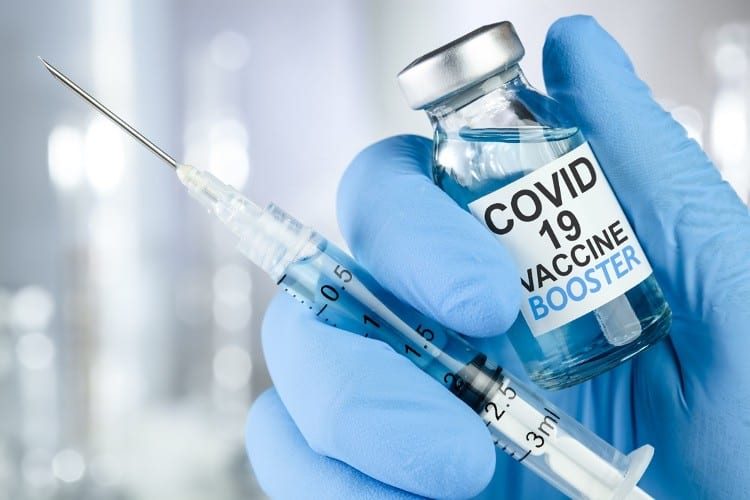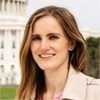
To “really” go back to the “way we used to live,” people will need to protect themselves by taking a fourth dose of Pfizer Covid vaccines and continue boosting their immune protection on an annual basis, believes Pfizer CEO Albert Bourla.
During his Sunday appearance on CBS’s Face the Nation, Bourla said, “Right now, the way that we have seen, it is necessary, a fourth booster right now,” while adding, “The protection that you are getting from the third, it is good enough, actually quite good for hospitalizations and deaths.” At the same time, the immune protection offered by the third dose “is not very good against infections” and “doesn’t last very long.”
This statement contradicts Bourla’s previous claim that he made in January, saying that the third dose grants “reasonable” protection against Covid, while two doses of the shot offer “limited, if any” protection.
On Sunday, Bourla said that his company is now submitting documents for the fourth dose to be authorized for use by the U.S. Food and Drug Administration (FDA). “We are just submitting that data to the FDA, and then we will see what the experts also will say outside [of] Pfizer,” he stated.
Asked if the FDA would be on board to authorize the fourth dose, Bourla expressed optimism that this time, the regulators at the FDA, public health officials at the Centers for Disease Control and Prevention (CDC) that ultimately give Americans health advice, and the pharmaceutical industry will be “well-coordinated” to best serve “Americans and the world.”
Bourla also reiterated his company’s goal of creating a vaccine effective against all variants of Covid for longer periods of time.
“We are working very diligently right now … to make not only a vaccine that will protect against all variants, including Omicron, but also something that can protect for at least a year,” he said, “And if we [are] able to achieve that, then I think it is very easy to follow and remember so that we can go back to really the way used to live.”
Bourla previously said that the annual Covid re-vaccination will become a “likely scenario.”
As of today, none of the vaccine manufacturers have been able to create a so-called sterilizing coronavirus vaccine that would completely protect one from getting infected since the coronaviruses mutate very quickly. Many scientists argue that the “leaky” vaccines — those that do not guard against infection — are speeding up the virus’s mutation.
One such scientist was recently deceased French virologist and Nobel Prize laureate Luc Montagnier, who explicitly warned that the leaky vaccines “feed the virus,” and facilitate its development into stronger and more transmissible variants. Speaking last year, he said that the variants “are a production and result of the vaccination,” and called the mass vaccination campaign an “unacceptable mistake.”
The mass vaccination program that uses “imperfect non-sterilizing vaccines” is “an excellent breeding ground” for the emergence of “highly infectious variants that may eventually lead to more frequent and more pronounced pathogenicity,” warned Dr. Paul Alexander and Dr. Geert Vanden Bosscheback in December 2021.
Scientists around the world have been pointing to the Covid vaccines being likely linked to a phenomenon called Antibody Dependent Enhancement (ADE) that enhances the disease in vaccinated people and facilitates the virus’s mutation.
Back in July 2021, just four months into the mass-vaccination campaign, and six months after the frontline workers and elderly had been vaccinated in December 2020, America started seeing fully vaccinated people becoming sick with Covid. Moreover, the infection load in fully vaccinated people was actually much higher than in the unvaccinated who got infected. One of the scientists pointing to Covid vaccines, and especially Pfizer, causing ADE was Dr. Robert Malone, an architect of mRNA vaccines.
“It happened with virtually all other coronavirus vaccine development programs,” he said. He called ADE a “vaccinologist’s worst nightmare,” and said that the fact that waning vaccine protection is causing greater virus replication in the fully vaccinated, and that this is “the worst-case scenario” and is already unfolding.
The federal government is fully aware of this development.
“Reports from our international colleagues, including Israel, suggest an increased risk of severe disease amongst those vaccinated early. Given this body of evidence, we are concerned that the current strong protection against severe infection, hospitalization, and death could decrease in the months ahead, especially among those who are at higher risk or who were vaccinated earlier during the phases of our vaccination rollout, “said CDC Director Dr. Rochelle Walensky during a White House press briefing dedicated to the Delta surge and discussion on the additional dose of the Covid vaccines in mid-August. This was the time the FDA approved a third dose of the Pfizer shot for some immunocompromised patients.
On December 9, when the Omicron variant arrived in America, the FDA amended the emergency use authorization (EUA) for the Pfizer shot, authorizing the use of a booster dose for administration to people 16 and 17 years of age “at least six months after completion of primary vaccination with the Pfizer-BioNTech COVID-19 Vaccine.”
One month later, the agency shortened the recommended interval between the initial inoculation and booster shot from six to five months and recommended immunocompromised Americans get a fourth dose of the shot. The agency also expanded the booster eligibility to include adolescents aged 12 to 17.
Also in January, the CDC altered its language by reclassifying “fully vaccinated” as “up-to-date” with vaccinations.
In February, the CDC once again updated its guidance for immunocompromised Americans, shortening the interval between the third and fourth doses from five to three months.





